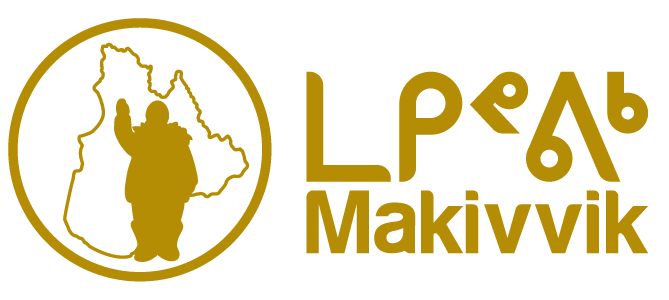By Stephen Hendrie
Monday, June 14, 2021, was a big day for Robbie Watt. He took part in a virtual press conference announcing the brand new Canadian Office of the Commissioner of Indigenous Languages (OCIL). Robbie was named as one of the three Directors, in addition to Commissioner, Ronald E. Ignace, and fellow Directors Georgina Liberty, and Joan Greyeyes.
Following comments by Heritage Canada Minister Steven Guilbeault, and Commissioner Ignace, Robbie made his comments in Inuktitut only. “All languages on this earth are uniquely precious. Let’s mindfully embrace this diversity.” A week later, in an interview, he said he knew Inuktitut was the only language available for translation and he took full advantage of that.
Asked about what it says regarding the health of Inuktitut versus other Indigenous languages Robbie laughed and said, “We have other needs! We’re not all the same!” He told a story about developing the standardized writing system — Inuktut Qaliujaaqpait — Inuit Tapiriit Kanatami (ITK) was leading, noting it was a difficult process. “ITK was just trying to create a way to be able to share information nationally across regions, to be able to have resources that could circulate. So, you have to compromise. Language is very close to our identity.”
He said he sees his role as an OCIL Director to help ITK spread the word about the standardized writing system. “To promote for them, support them, make sure that the population knows, ‘Hey, this is what’s being done here.’”
The OCIL was created as part of Canada’s Indigenous Languages Act. The office will operate independently from the Government of Canada and support efforts to reclaim, revitalize, maintain and strengthen Indigenous languages. It will also promote public awareness of Indigenous languages, and undertake research on the provision of funding of Indigenous languages in Canada. It will also provide dispute resolution services and review complaints.
Robbie’s passion for his new position came through loud and clear. He said it started when he was interviewed for the role in early 2021. “I decided I was going to go big! This is a great opportunity for reconciliation. Let’s create a huge pavilion, a language nest of some sort here in Ottawa. This is an opportunity for us to shine, and showcase our languages. Let people hear our languages and see them. A place where translators and interpreters could retreat. Perhaps it would be a public-private partnership, possibly with universities.”
Based on Robbie’s work history this position fits him like a glove. He was recently the President and Commissioner of Kativik Ilisarniliriniq, where he was able to directly strengthen Inuktitut through the curriculum. He is also the former President of the Avataq Cultural Institute where he launched the famous Inuit tisanes, a project he is very proud of as it was also designed to support Inuit culture and language.
Aside from the strength of Inuktitut, there are also disparities across regions. While the language is healthy in Nunavik, and Nunavut, there is work to be done to revitalize the Inuit language in Nunatsiavut and the Inuvialuit Settlement Region.

“I think what I need to do is to map out what’s going on,” said Robbie. “Who’s doing what, do a good inventory, and from there, how else can we help? What way can we ensure you reach your goals and objectives?”
The OCIL will have a healthy budget to achieve its objectives. It receives two streams of funding – up to $6.6 million per year for its operations, and up to $30 million per year to support Indigenous communities, organizations and governments for research, innovation and the use of new technologies. In the current fiscal year, until the end of March 30, 2022, the OCIL will receive $5.5 million for operations, and $15 million for supporting Indigenous communities.
In the Nunavik region, for example Robbie said it has been aching for a language authority for years. “Now how do we do this,” he said. “How do we approach this?” He has met with the President of Quebec’s Office de la Langue française in the past, and said one of the issues is money. “The Office de la langue française doesn’t have a lot of money, but it has the support of the Quebec government.”
The members of the OCIL represent the Indigenous community across Canada. Commissioner Ronald E. Ignace is a member of the Secwepemc Nation in British Columbia. Director Georgina Liberty has devoted her life to preserving, protecting and cherishing her Métis identity and spirit. Joan Greyeyes is a member of the Muskeg Lake Cree Nation within Treaty 6 Territory in Saskatchewan.
“We celebrate this day where we breathe new life into all of our Indigenous languages for the future,” said Commissioner Ignace. “Our languages will no longer stand in the shadow of other languages here in our land. Let us always honour our Indigenous languages.”
Robbie said the press conference on June 14 is the first time they connected. “I lived in Winnipeg for four years and I believe that Georgina and I have crossed paths before. We haven’t met face to face yet. We are only starting on July 12. I know that Ron has been quite involved in language and culture. All I know is that I’m very passionate. Whatever it takes. It’s going to be a fun ride!”





